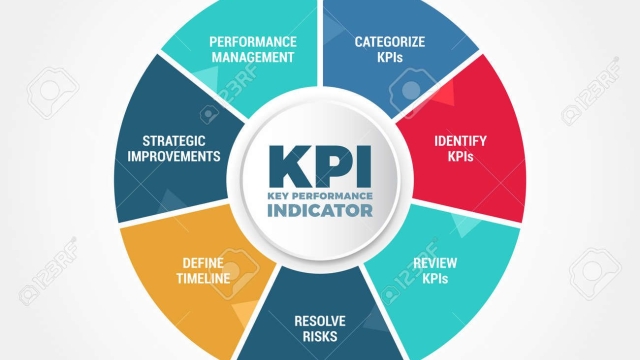Unlocking Success: Unveiling the Power of Key Performance Indicators

In today’s fast-paced and competitive business landscape, success lies in the ability to make informed decisions based on accurate and timely information. This is where Key Performance Indicators (KPIs) step in as invaluable tools to gauge the performance and progress of organizations across industries. With their ability to provide clear and measurable insights, KPIs have become the compass guiding businesses towards their goals.
At their core, KPIs are quantifiable metrics that reflect the performance of specific aspects of a business. They serve as a language that bridges the gap between goals and actions, allowing organizations to identify what matters most and align their efforts accordingly. By focusing on these key metrics, businesses gain a deeper understanding of their strengths and weaknesses, enabling them to make data-driven decisions that drive growth and unlock their full potential. In essence, KPIs serve as the pathway to success, bringing clarity and direction to every step of the journey. So, let’s delve deeper into the power of Key Performance Indicators and explore how they can revolutionize the way we measure and achieve success.
Understanding Key Performance Indicators
Key Performance Indicators (KPIs) are vital metrics that organizations use to evaluate their performance and measure progress towards their goals. These indicators provide valuable insights into various aspects of an organization, enabling effective decision-making and strategic planning.
KPIs serve as a benchmark to assess the performance of different departments, teams, or individuals within an organization. They enable businesses to monitor key areas such as sales, customer satisfaction, operational efficiency, and financial performance. By tracking these indicators, organizations can identify areas that require improvement or adjustments to ensure continued growth and success.
When selecting KPIs, it is crucial to align them with overall business objectives. They should be specific, measurable, achievable, relevant, and time-bound (SMART). For example, if a company aims to increase customer retention, a suitable KPI could be the percentage of customers who repurchase within a specified timeframe.
To effectively use KPIs, organizations must establish clear targets and regularly track and analyze the data. By doing so, they can identify trends, patterns, and areas for improvement, which helps in making informed decisions and implementing necessary changes to achieve desired outcomes.
Overall, understanding and leveraging the power of Key Performance Indicators empowers organizations with the knowledge needed to unlock their potential and drive success in today’s dynamic business landscape.
Choosing the Right Key Performance Indicators
When it comes to selecting the most suitable Key Performance Indicators (KPIs) for your organization, there are several factors to consider. The KPIs chosen should align with your overall business objectives and provide meaningful insights into the performance of your company. To assist you in this process, here are three key considerations to keep in mind:
-
Relevance to Business Goals: The first step in choosing the right KPIs is to ensure that they are directly tied to your organization’s strategic objectives. By identifying the specific goals you want to achieve, you can then determine which metrics will offer the most valuable insights. For example, if your goal is to increase customer satisfaction, KPIs such as Net Promoter Score and Customer Satisfaction Index would be relevant indicators to track.
-
Measurability and Reliability: It is crucial that the selected KPIs can be measured accurately and reliably. This means that the necessary data should be accessible and readily available. Additionally, these metrics should provide consistent and trustworthy information that can be relied upon for decision-making purposes. Conducting a feasibility study before finalizing your KPIs can help ensure that you have access to the required data and that it is of sufficient quality.
-
Actionability: The KPIs you choose should not only provide insights into your organization’s performance but also inspire action. They should be able to highlight areas where improvements can be made and help identify opportunities for growth. KPIs that are actionable are those that can trigger specific actions and interventions to drive desired outcomes. For instance, if you aim to enhance employee productivity, tracking KPIs related to employee engagement or average response time can enable you to take targeted measures to boost performance.
By carefully considering the relevance to business goals, measurability, reliability, and actionability of your chosen KPIs, you can unlock the tremendous power they hold in driving success for your organization. Remember, selecting the right KPIs involves an ongoing process of evaluation and adjustment as your business goals and priorities evolve over time.
Utilizing Key Performance Indicators for Success
Key Performance Indicators (KPIs) are the powerful drivers that lead to success in various aspects of life, business, and personal growth. By tracking and measuring these key metrics, individuals and organizations can gain valuable insights into their performance, make informed decisions, and drive positive change.
KPIs provide a clear direction and focus for individuals and teams, enabling them to prioritize their efforts and resources effectively. These indicators act as a compass, guiding us towards our goals and objectives. By identifying and monitoring the right KPIs, we can measure progress, identify areas for improvement, and celebrate successes along the way.
Moreover, KPIs create a sense of accountability and responsibility as they provide a basis for evaluating performance objectively. By setting specific, measurable, achievable, relevant, and time-bound KPIs, individuals and organizations can ensure that everyone is on the same page and working towards a common goal. This clarity and transparency foster a culture of ownership and drive continuous improvement.
In addition to monitoring progress, KPIs also enable individuals and organizations to identify potential risks and challenges. By closely monitoring leading and lagging indicators, we can spot early warning signs, analyze trends, and take proactive measures to mitigate risks. This foresight allows us to stay ahead of the curve and make informed decisions to navigate uncertainties with confidence.
In conclusion, the utilization of Key Performance Indicators is a powerful strategy for unlocking success in various contexts. By incorporating KPIs into our daily lives, businesses, and personal development journeys, we can effectively measure progress, drive improvement, and make data-driven decisions. So, let’s embrace the power of KPIs and unlock our true potential for success.


